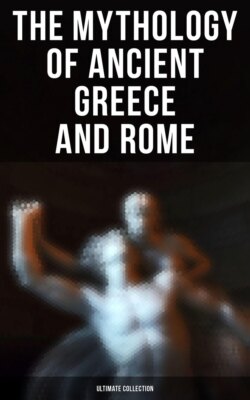Читать книгу The Mythology of Ancient Greece and Rome - Ultimate Collection - Homer - Страница 65
На сайте Литреса книга снята с продажи.
EXPLANATION.
ОглавлениеPausanias makes mention of five deluges. The two most celebrated happened in the time of Ogyges, and in that of Deucalion. Of the last Ovid here speaks; and though that deluge was generally said to have overflowed Thessaly only, he has evidently adopted in his narrative the tradition of the universal deluge, which all nations seem to have preserved. He says, that the sea joined its waters to those falling from heaven. The words of Scripture are (Genesis, vii. 11), ‘All the fountains of the great deep were broken up, and the windows of heaven were opened.’ In speaking of the top of Parnassus alone being left uncovered, the tradition here followed by Ovid probably referred to Mount Ararat, where Noah’s ark rested. Noah and his family are represented by Deucalion and Pyrrha. Both Noah and Deucalion were saved for their virtuous conduct; when Noah went out of the ark, he offered solemn sacrifices to God; and Pausanias tells us that Deucalion, when saved, raised an altar to Jupiter the Liberator. The Poet tells us, that Deucalion’s deluge was to be the last: God promised the same thing to Noah. Josephus, in his Antiquities, Book i., tells us, that the history of the universal deluge was written by Nicolas of Damascus, Berosus, Mnaseas, and other ancient writers, from whom the Greeks and Romans received it.
